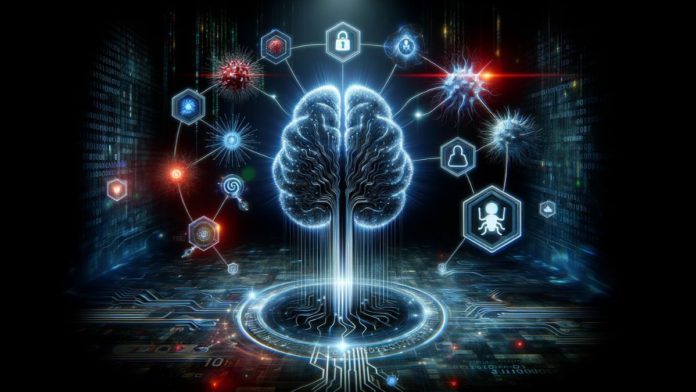The digital age has been guided by unprecedented technological advancements, transforming the way we live, work, and communicate. However, with these advancements come new challenges, particularly in the realm of cyber security. As cyber threats persist to evolve in complexity and sophistication, the role of Artificial Intelligence (AI) in detecting and mitigating these threats has become increasingly crucial. In this article, we will delve into the multifaceted role of AI in bolstering cyber security, exploring its applications, benefits, and the importance of staying updated with a Cyber Security Course to navigate this ever-evolving landscape.
Understanding the Cyber Threat Landscape
Before we explore the role of AI in combating cyber threats, it’s vital to comprehend the evolving nature of cyber threats in the digital age. Cyberattacks have grown in scale and sophistication, ranging from data breaches and ransomware attacks to advanced persistent threats (APTs) that can target government institutions and large corporations. These malicious actors continuously adapt their tactics, techniques, and procedures (TTPs) to exploit vulnerabilities, often staying one step ahead of traditional cyber security measures.
AI: A Game-Changer in cyber security
AI has emerged as a game-changer in the battle against cyber threats. With its ability to analyze vast datasets, identify patterns, and adapt in real-time, AI enhances threat detection and response in several ways:
1. Anomaly Detection
AI-powered systems are adept at identifying anomalies within a network or system. They establish a baseline of typical behavior and can quickly detect deviations that may indicate a cyberattack. For example, if a user suddenly attempts to access an unusual number of files or a server experiences an uncharacteristic surge in traffic, AI can raise an alert.
Aspiring cyber security professionals can leverage a Cyber Security Course to gain the skills and knowledge necessary for implementing and managing AI-driven anomaly detection systems.
2. Threat Intelligence
AI can help organizations proactively monitor and analyze threat intelligence data from various sources, including cyber security feeds, dark web monitoring, and historical attack data. This enables the identification of emerging threats and vulnerabilities, allowing for timely patching and protection.
3. Behavioral Analysis
AI-driven behavioral analysis goes beyond signature-based detection to evaluate user and entity behavior. By assessing activities in real time, AI systems can spot unusual user behaviors or privileged account misuse, helping to detect threats early.
Enrolling in the Best Cyber Security Course is a great way for cyber security professionals to gain expertise in AI-driven behavioral analysis techniques and tools.
4. Rapid Incident Response
One of the strengths of AI in cyber security is its speed. It can autonomously respond to threats by isolating affected systems, terminating malicious processes, and alerting security personnel. This swift response minimizes potential damage and reduces the dwell time of attackers within a network.
5. Predictive Analysis
AI is capable of predictive analysis, which allows organizations to anticipate potential threats based on historical data and patterns. By recognizing emerging threat trends, organizations can take preventive measures before a full-blown attack occurs.
6. Enhanced User Authentication
AI can bolster user authentication processes by employing biometrics, behavioral analysis, and machine learning algorithms to verify user identities. This lowers the risk of unauthorized admission to sensitive systems and data.
AI Challenges in cyber security
While AI offers significant advantages in cyber security, it also presents unique challenges:
1. Adversarial Attacks
Cybercriminals are increasingly using adversarial attacks to deceive AI systems. They manipulate input data to evade detection, a tactic that requires ongoing AI model refinement and vigilance.
2. Data Privacy Concerns
AI systems depend on extensive amounts of data for training and analysis. This raises concerns about data privacy and how organizations handle sensitive information.
3. Ethical Considerations
As AI in cyber security continues to advance, ethical considerations arise, particularly concerning surveillance, data collection, and decision-making.
Cyber Security Professionals: Staying Ahead with Education
The rapidly evolving landscape of AI in cyber security underscores the importance of ongoing education and professional development. Cyber security professionals need to stay updated with the latest tools, techniques, and strategies to effectively combat cyber threats.
1. Cyber Security Course: Gaining Expertise
Enrolling in a Best Cyber Security program is an excellent way to gain expertise in AI-driven cyber security. These courses provide a deep dive into AI technologies, their applications, and practical skills for implementing AI-driven security measures.
By pursuing a Cyber Security Course, professionals can enhance their understanding of AI’s role in threat detection, vulnerability assessment, and incident response.
2. Certifications: Proving Competency
Cyber security certifications are widely recognized in the industry and demonstrate an individual’s expertise in specific areas. Certifications like Certified Information Systems Security Professional (CISSP) and Certified Information Security Manager (CISM) often include AI and machine learning components.
Earning relevant certifications can validate a cyber security professional’s knowledge and skills in AI-driven cyber security.
3. Networking and Conferences: Staying Informed
Attending cyber security conferences, seminars, and webinars provides chances to network with peers and learn about the latest developments in AI and cyber security. These occasions often feature presentations and discussions on cutting-edge AI technologies.
Building a professional network can also facilitate collaboration and information sharing in the field of AI-driven cyber security.
Conclusion
The role of Artificial Intelligence in detecting cyber threats cannot be overstated. AI’s ability to analyze vast datasets, detect anomalies, and respond rapidly to threats has revolutionized cyber security. However, the dynamic and evolving nature of cyber threats necessitates continuous education and professional development for cyber security experts.
By enrolling in a Cyber Security Course, earning relevant certifications, and actively participating in the cyber security community, professionals can stay ahead of the curve and effectively combat cyber threats in an AI-driven world. As technology continues to progress, the role of AI in cyber security will only become more vital, making ongoing education and training essential for safeguarding our digital world.


